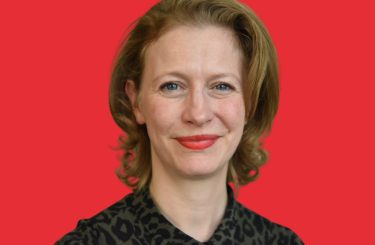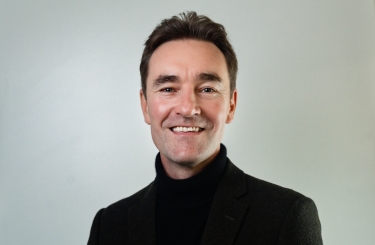Related



London Funders’ new Chair, Jenny North, Director of The Clothworkers’ Foundation, shares her reflections from London Funders’ annual autumn conference where over 100 people from across our membership came together to explore how we can work in solidarity with the communities we support.
Spending the day at London Funders’ conference this week felt like both a luxury and a necessity. Funders from across the capital and country came together to hear from international peers and community leaders about how to build community wealth and power - both to mitigate the worst effects of current crises and, longer term, to build a better future.
At the heart of this year’s conference was the question of how to ensure communities are in the driving seat of change. How do funders provide resource and enable capacity without taking control? How can our individual organisational agendas be in service of communities’ needs, rather than stifling them? And how can we use our power to rethink what we mean by ‘risk’ and who really holds it?
Each of the three panel sessions brought together incredible lineups of speakers from London - but also Nepal, Canada, Berlin and the US. It was a privilege to hear first-hand how civil society leaders and funders are creating change in their local neighbourhoods, at a city level and nationally. I was reminded how much tried-and-tested knowledge funders have to draw on, and the appetite among our own membership to keep testing, be more intentional about our actions and to put collaboration at the fore – we can’t do any of this on our own.
How do funders provide resource and enable capacity without taking control? How can our individual organisational agendas be in service of communities’ needs, rather than stifling them?
We heard about different approaches to community wealth building – from community-owned assets to participative investment strategies and cooperative ownership models. I was struck by a comment that community wealth-building need not always be transformative with a capital T – although it certainly can be. Where national economic growth and productivity are sluggish, it may enable communities to better weather the storm, maintain what they have, and lay the foundations for better days to come.
We also heard about the need for funders to bring not just money to people doing ‘frontline’ work in small organisations but also relational support – whether that's genuine critical friendship, access to a community of peers, or expert support in areas like HR and communications. Being a community leader can bring with it emotional, financial, and personal costs, and funders are well-placed to alleviate some of that burden and provide psychological safety as well as the financial support.
I was reminded how much tried-and-tested knowledge funders have to draw on, and the appetite among our own membership to keep testing, be more intentional about our actions and to put collaboration at the fore – we can’t do any of this on our own
This week’s conference was of course also a highlight for me on a personal level, with my election to the role of Chair of Trustees. As you know, I’m picking up the baton from David Farnsworth, someone who has presided over a period of amazing growth in size and impact for the organisation. He has been crucial in this, and in helping London Funders become a network which is truly a critical friend to its members, challenging us all to think about what we do and how we do it. The cross-sector nature of our membership helps us bring different perspectives together, and we’ve seen through initiatives like Propel and Collaboration Circle just how important these are in creating successful collaborations.
That's why it was such a pleasure to welcome new trustees from different corners of our membership to the Board following the AGM: Dominic Briant and Sally Dickinson who were re-elected for another term; and Naz Biggs from Guys and St Thomas’ Foundation and Jessica Leech from Southwark Council, who are both joining the Board for the first time alongside Simon Latham from City Bridge Foundation taking on one of the co-opted positions on the Board. I can’t wait to work with them and the rest of the London Funders Board in my new role, and I extend my thanks to both David and our outgoing trustees Andy Matheson and Matt Parsonage for all their contributions during their tenures.
This was the first of many gatherings in my new role as Chair and it was a wonderful opportunity to meet so many of the current members in the network. I left with ideas forming, lots of conversations started and a real sense of determination about the future – something which I think we all need to hang onto at the moment. It showed that we already have so many of the tools and opportunities to work in solidarity with communities at the forefront of social, economic, and climate progress. I can’t wait to work with you all to realise those opportunities.


